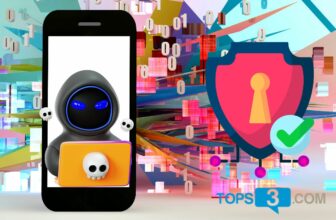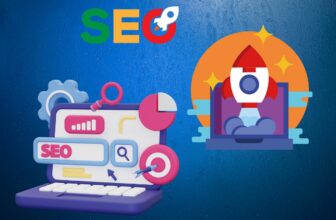Artificial Intelligence has been around for years, but recent technological innovations have promoted its rise: The power and data to efficiently execute AI algorithms are now within everyone’s reach.
AI will enable marketers to personalize customer experience and engagement.
We are now in an area where a company can increase the expected value of every one of its customers, and increase their total engagement participation.
By observing how consumers to act (through the digital clues they leave behind), business owners can learn what shoppers care about and what is important to them. By aggregating this digital data, and applying the right algorithms, businesses can recommend products, offer interesting deals, and create personalization of segments of one, rather than batches of hundreds.
Machine learning is well suited to this type of data aggregation, analysis, and recommendation.
How does AI help?
Okay, we already know that artificial intelligence can solve many problems. But the question is can we define what we want?
Most present-day AIs are “administered learning systems”. We have historical data, of which we know the outcome. So, to get a particular result, we have to examine all that data beforehand. It is a constant process of refinement and improvement.
Data is big and it’s the focal point of data science. But, if the data is bad, the data science that comes out will also be bad. So, a big part of the data scientist’s life is making sure that the data coming into the system is stored, planned, and verified correctly.
How is this different from traditional marketing?

We have reached a point where the number of contacts and touch points for us as consumers has gone from one, (email), to too many. And this is just the beginning of the game.
Until now we could determine the optimal time to send emails or notifications to the entire consumer base.
But now, we can do this on an individual basis. We see an individual go in and respond to messages, or not respond, across various channels over the last two months. And we know how they respond to different types of messages.
We can set up our campaigns to be sent to an individual user just before the scheduled time or event, and on a public channel. We have a tremendous amount of processing power, so it’s no longer a limiting factor.
Best AI tools for marketing
1. Exceed.Ai: lead generation and lead qualification.
Every marketer has a lead generation problem. Either you don’t have enough of them and have to figure out how to get more. Or, you have a bunch of them and have to organize and address them all without feeling overwhelmed.
That’s where virtual sales assistants like Exceed.ai are Being Helpful.
Exceed.ai automates every possible part of lead qualification:
- Allowing a marketing team to get organized.
- Track leads and
- Communicate with them.
AI personalizes chats and email communication to identify what each lead needs before an actual human has to be involved in the mix.
This streamlines the entire lead qualification and sourcing process. The platform is designed to minimize the possibility of the lead slipping through the cracks. This means that any potential lead opportunity is tracked.
2. MarketMuse: search engine optimization and content analysis.
Not everyone is an SEO Expert. There are so many different aspects of digital marketing that it’s difficult to know the ins and outs of each, especially when there are many variables, as with search engine optimization and long-tail keywords.
But SEO is an important part of, well, optimization, it’s right there in the name. And optimization is a vital part of digital marketing success.
If SEO and content analysis isn’t your thing, tools like MarketMuse can help with that.
This tool’s AI performs competitive content analysis and finds potential keywords that haven’t been used in your content. It’s a great tool for finding and filling, any gaps you may have in your otherwise highly structured SEO content.
It also analyzes your content for consistency, relevance, and optimization. (Because every article writer or blogger has their moments of distraction from the main point).
3. Lumen5: slideshow and video creation.
Lumen5 advertises itself as the “fastest video creator for social media marketing. ” It sifts through written content, such as blog posts, looking for the most relevant and interesting content snippets. It then combines them with images, either photos or videos, to create a marketing video that features both. It uses artificial intelligence technology to assemble the first version of a video, which covers most of the groundwork. After that, content creators can edit, add logos, and music, save and publish.
Accepted, there is no real substitute for carefully crafted videos with special attention to every frame. At the same time, it’s nearly impossible to meet the demand for video production by doing everything “by hand.” So, what Lumen5 offers is the best option to keep you on top of the wave, without collapsing under the demands.
There is a free and paid version of this tool.
4. NetBase: social media marketing through AI
Social media marketing is a booming proposition, and any company that wants to drive growth can’t afford to ignore the multitude of social media platforms clamoring for attention.
That means content generation, post-scheduling, customer conversation, and follow-up, all on a potentially very large scale.
So how does a digital marketer manage all that without letting any customers fall through the conversation cracks?
NetBase machine learning units, a social listening tool. It tracks and analyzes social media reactions, including customer conversations, @s and hashtags, likes, forwards and retweets, etc. This gives digital marketers a more complete picture of social sentiment and attitude towards a brand or business. This also includes specific ads, products, and innovations.
This allows marketers to focus on what needs to be done, whether it’s rewarding happy and loyal customers or putting out potential fires.
The NetBase platform also offers detailed consumer insights based on demographic data, which helps digital marketers build tracking and future marketing campaigns.
5. Albert.ai
Creating a marketing campaign based on past experiences.
This is a popular marketing platform, to the point where even non-marketers have probably heard of the tool. It optimizes and automates on a comprehensive basis while offering “personalization at scale.” You can design campaigns that are relevant and detailed regardless of the size of your audience.
The tool combines marketing across a variety of different channels; automates interaction management; operates 24/7; and features content optimization to get the best return on your marketing investment.
Albert’s creators promise “more persistence, accuracy, intelligence and efficiency” than other companies, based on ML technology.
The AI creates campaigns and initiatives based on past statistics of what did and didn’t succeed, combining the data into a “greatest hits” campaign. And because it is a continuous learning platform, it can constantly guide marketing to maximize engagement, investment, and return.
6. SEMRush.
SEMRush has a position-tracking feature that allows you to view and track your rankings for specific keywords. SEMRush is a comprehensive suite that allows you to perform SEO automatically. You will also be able to run a content marketing campaign, PPC analysis, social media marketing, and more.
This AI marketing tool is one of the strongest among the competition. You can even track how your website ranks against Google’s top 100 organic or paid results. The content marketing toolkit allows you to perform a topic search to identify the latest trends and create your content marketing plan.
7. Smartwriter.ai.
The smart writer is an AI marketing tool that can help you with email outreach automation. You can use Smart writer to generate a personalized email. You can even include a personalized subject line to engage your customers.
This AI marketing tool provides you with backlink generation. You can also use it for Shopify product description and title creation. You can integrate it with third-party platforms and tools to increase the reach of your cold email campaign.
8. Grammarly.
This may seem like a surprising addition, but you can leverage Grammarly as the best free AI marketing tool for your business. Grammarly is an AI-based content marketing platform that will allow you to check your written content to make sure it looks professional and polished.
The spell and the grammar-checking feature will help you produce highly accurate content for real-time marketing. You can even install a free Google Chrome extension. However, if you want to increase clarity, style, and tone, you can use paid options like Grammarly Business and Grammarly Premium.
AI applications in digital marketing

Some of the main applications of AI in digital marketing are:
- Predictive analytics. Companies can adapt to the user’s needs, anticipating them to offer them the product or service they need when they are looking for it. Predictive analytics is based on the use of algorithms, data, and machine learning techniques to determine the probability of something happening by using historical data.
- Content creation. Through AI, original and interesting content can be created using certain tools. They do this from basic information and certain data. Several major media outlets use the technology to create news and drive traffic to their websites.
- Content personalization. With Artificial Intelligence it is possible to offer personalized content to each user automatically. 90% of the world’s data has been generated in the last 2 years thanks to digitalization and the fact that the Internet is used more than before. This creates the need to generate more information, but it is of such a magnitude that it would take people a long time to process it. Hence the need for Big Data and AI systems, with infinite data processing capacity.
- Programmatic advertising. Programmatic advertising uses AI to automate the purchase of ad space, making ads reach more specific population segments and reducing the cost of acquisition with greater advertising efficiency.
- Chatbots. More and more companies are turning to them to offer effective 24-hour communication to customers. They can handle a large number of queries simultaneously with a high level of service quality and improve customer service.
- Marketing automation. AI makes it possible to automate marketing thanks to human intervention, which is responsible for applying rules and determining flows, although it is expected that these tools will soon be autonomous and adapt to users thanks to their profiles and historical data.
- Knowing the reasons for purchase. Knowing the causes of purchase is one of the advantages of AI, which allows for improving marketing actions by knowing what works best. This knowledge is also very useful to know what is the best way to sell the product through personalization, achieving an improvement in customer satisfaction.
- Email marketing. Several tools use artificial language processing to improve email marketing results, complementing the actions of marketing managers. Therefore, it is a good complement to other email marketing strategies.
- Web design and User Experience UX. Some tools apply AI to design web pages based on user input, generating good web results.
- Product innovation. Thanks to the prediction of trends and better knowledge of the user, AI facilitates innovation when launching products and services.
- Recommendations. AI makes it possible to give purchase recommendations to users based on data such as purchase history, among other uses of this data.









